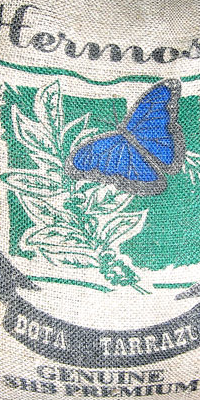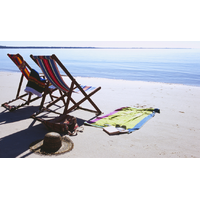Annual Costa Rica Bakeoff
Date Posted:20 October 2011
Costs Rican coffees are in high demand across the world. They offer sensational bright, sweet notes and a broad range of finishes
 |
We go to extraordinary measures to source great coffees - direct trade with farms, daily conversations with local and overseas brokers and there is our constant weekly arrivals of new coffees to roast and evaluate - it's never ending. |
Costa Rican Coffee Beans Compared
What's the process ?
Most roasters use quite basic and rudimentary methods to evaluate and select beans.
Unfortunately, many use price as a key criteria to their buying decisions - restricted to purchasing their beans within price-bands to ensure it fits into the operating budget so they have sufficient funds to spend on the stuff that means nothing to cup quality - like marketing and freebies that are demanded by cafes, etc.
Some roasters rely solely on very small samples that are roasted by the brokers and sent in the mail to trial. We are talking here about 100 - 150g samples that are sent in waxed paper bags - reality is that these sample may provide some insight as to the bean character, but it is clearly an insufficient sample size to adequately evaluate a coffee bean's true potential.
You can waste 100g trying to dial in the grinder properly, then you have 1 or 2 shots to taste the coffee - it's simply not enough.
Some roasters take a 200 or 300g green sample and run it through their sample roaster for analysis, then cup in the traditional method (lighter roast, coarser grind) to detect defects.
We take a completely different approach.
Stage 1
Using a combination of research, past experience and knowledge, we work with brokers to determine comparative data on coffees we are interested in. Once we have drawn up a short-list, we then BUY WHOLE BAGS of coffee beans - yes, that's right we take 60 - 70kg of a potential coffee so that we can roast it on our own production equipment, cup the results over 10+ days and graph the results.
As you know, coffee changes considerably over time, so something we may think is so-so on Day 8 can be stunning on Day 9 or Day 10 - such is the challenge of working with fresh and developing coffees.
Stage 2
We make decisions about whether a coffee bean is intended to feature in one of our leading blends, or whether that coffee is so delicate that it should remain standalone as a Single Origin. These decisions are made during stage 2 evaluation and testing. You see, not all coffees can be blended together, so it makes sense to trial new coffees in blends to ensure that all components of the blend remain in harmony.
Stage 3
This is the roller coaster phase - engaging our Beta tester customers. A select group of highly experienced cafe owners and baristas who are only too happy and eager to trial new coffees in the hope of a gratifying discovery. This process takes a few weeks as we release small quantities and the Beta testers provider both their own personal opinions as well as the feedback of their customers.
Costa Rica Bakeoff
During May we are testing a short list of 4 new premium grade Costa Rican coffees. OK, we have a certain fetish (or perhaps obsession) with Costa Rica coffee beans.
|
Costa Rica DOTA CO-OP TARRAZU |
Always a classy, quality professionally prepared bean - this coffee has been in our portfolio for more than 3 years. These small, hard almost ball-bearing like beans offer brilliant coffee flavor with clean, sweet fruit notes. |
|
COSTA RICA FINCA CANDELARIA ESTATE |
A true Estate microlot - no blending at the co-op with lower quality beans. Bright and zesty acidity. |
|
Costa Rica Jaguar |
Jaguar beans are hulled from parchment that is 100% sundried in a greenhouse especially designed to cater to wet weather conditions, thus to ensure a better coffee quality. This coffee is produced by the most sustainable coffee mill in Central America, San Diego Mill operated by Beneficios Volcafe. Jaguar is an innovative brand designed by Jürgen Plate - a great coffee specialist and one of the coffee pioneers in the country. His fluency in coffee blending, blend design, let to creation of ‘Jaguar,’ a name that commemorates Volcafe as a leading sponsor for the Jaguar Conservation Program in Costa Rica. |
|
Costa Rica Miramonte |
Catuai varietal beans originating from West Valley, Naranjo. Miramonte beans are wet processed and they are cultivated on the elevation of 1’000-1’200 above sea levels. Best mature beans are picked from October through February and this lot is going to be as fresh and new as it gets. Miramonte has its real life history embedded in generations of families working in the coffee business. Its history dates back to 1910 when Mrs Lucila Morales bought Hacienda Miramonte on the county of Heredia. In this hacienda, the Gurdian Family (great, great grandsons of Mrs Luciala) produced and milled coffee for almost 90 years. |



